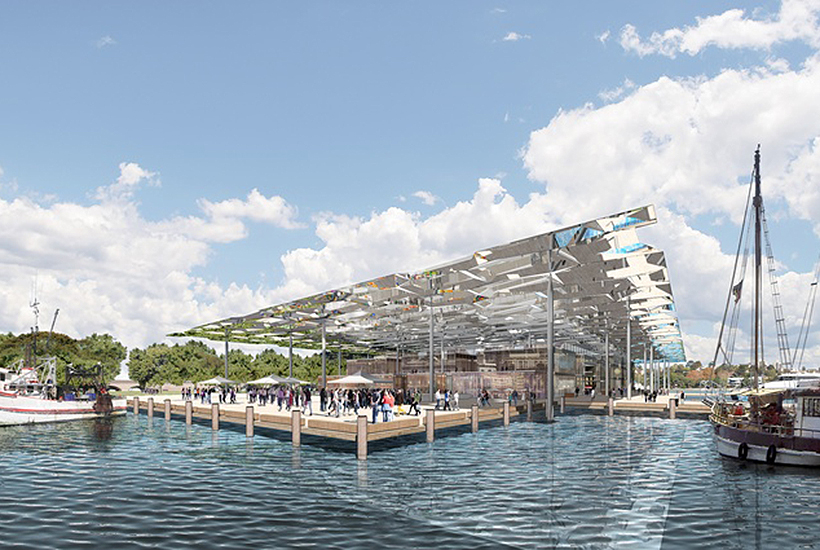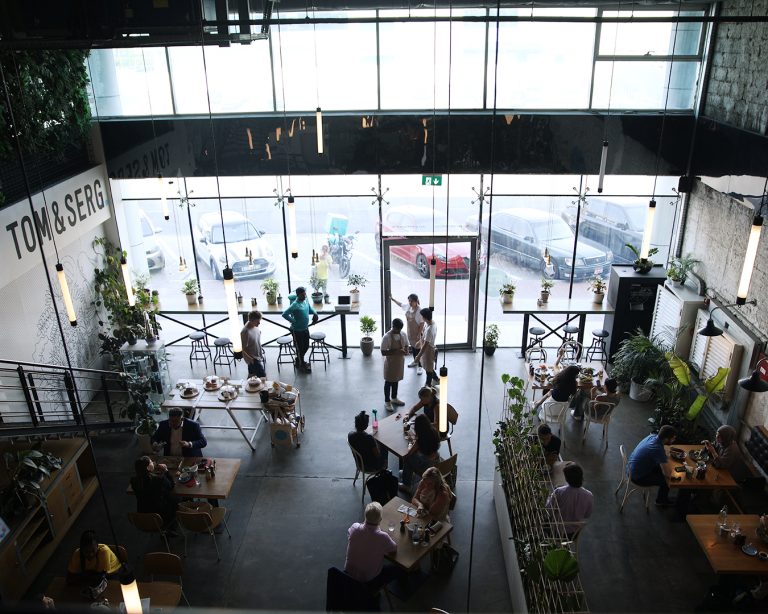Pictures: The Sydney Fish Market you’ll never see

This is the Sydney Fish Market that you’ll never see, and will never be.
The award-winning reference design by Allen Jack and Cottier and NH Architecture’s was recognised internationally recently, with the World Architecture Festival’s ‘Future Project of the Year’ prize at a ceremony in Berlin.
But despite being lauded for the “great transformation it offers to the area” and the way in which “its success stems from the engagement and collaboration with politicians, developers and land owners”, the design will never come to fruition, as it was only created as a reference for other architecture firms as they competed for the right to design the project.
Commercial Insights: Subscribe to receive the latest news and updates
The Fish Market is in the midst of a dramatic transformation that will see it relocated to a new site at Blackwattle Bay, adjacent to its current position at Pyrmont.

A concept drawing of the Sydney Fish Market redesign. Pictures: Allen Jack and Cottier and NH Architecture.
The project will more than double the size of the market to 35,000sqm, of which 15,000sqm will be dedicated to food retail.
The final design of project is now in the hands of Danish company 3XN, which saw off competition from more than 60 other groups to win the final design contract.
Sydneysiders are torn on the Fish Market’s place within the Bays Market District. A new report released this week by UrbanGrowth NSW shows almost a third of the 508 respondents to a survey about the precinct feel the delivery of the Fish Market as the first step in the area’s urban transformation process is not important.

A concept drawing of the Sydney Fish Market redesign. Pictures: Allen Jack and Cottier and NH Architecture.
“Some believed the new Sydney Fish Market should not be located at the head of Blackwattle Bay, commenting that it should be: redeveloped in its current location, redeveloped in an alternative location (such as nearby White Bay, or further afield in other areas such as Western Sydney), or that the location should be flexible,” the report says.
“There was some concern that the new Sydney Fish Market could negatively impact the local area through increased traffic congestion, more people, and prioritising commercial interests.”
But the report notes that many respondents believed the same issue was “important” or “very important”.







